Heimliche Ehen (1956)
Género : Drama, Comedia, Drama, Comedia
Tiempo de ejecución : 1H 31M
Director : Gustav von Wangenheim
Escritor : Gustav von Wangenheim
Sinopsis

Acostumbrada a la tranquilidad de Illinois donde tiene su residencia, la Dra. Kate Forester se traslada a un ajetreado hospital de Chicago. Lo que más la duele es desprenderse de su preciosa casa de madera con unas enormes ventanas que dan al lago. Pero se la alquila a un desconocido, al que deja una nota pidiéndole que le reenvíe el correo a la nueva dirección. Alex Wyler, el nuevo inquilino, es un frustrado arquitecto con mucho talento que tiene una conexión especial con la casa.
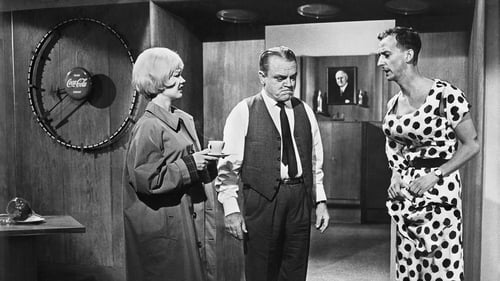
C.R. MacNamara, un alto directivo destinado en Berlín Occidental, recibe el encargo de cuidar de la hija de su jefe durante una de sus visitas. Cuando MacNamara se entera de que la chica se ha escapado y ha contraído matrimonio con un exaltado joven comunista, y de que su jefe estará de vuelta en tan solo veinticuatro horas, no le queda más remedio que transformar al reacio revolucionario en un yerno digno; de lo contrario, ya puede despedirse de su ascenso. Pero en menos de lo que se tarda en decir "un, dos, tres", sus planes se le escapan de las manos y provocan un incidente internacional capaz de enfadar a los rusos, a los alemanes y, lo que es peor, a su propia esposa, que ya está con la mosca detrás de la oreja.
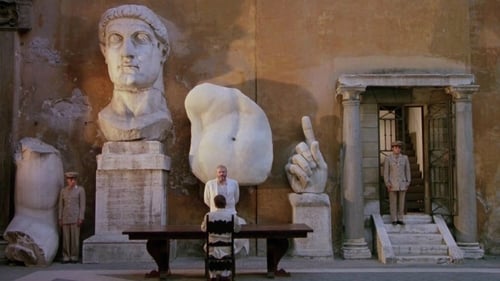
Un arquitecto norteamericano llega a Roma, acompañado de su esposa, con motivo de una exposición dedicada al artista francés del sigo XVIII Étienne-Louise Boullée. El arquitecto, a lo largo del tiempo, se obsesiona con unos tremendos dolores de estómago, convencido de que está relacionado con que su mujer está teniendo una aventura con otro colega italiano.
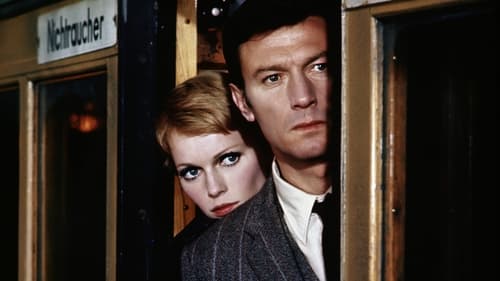
Alexander Eberlin (Harvey), un insignificante agente del Servicio de Inteligencia Británico, es, en realidad, un espía ruso llamado Krasnevin. Cuando Fraser (Harry Andrews), el jefe del Servicio de Inteligencia Británico, se entera, encarga a sus hombres la misión de acabar con él. Gatiss (Tom Courtenay), un asesino despiadado que desprecia a Eberlin pero que no conoce su secreto, se convierte en su aliado. Cuando el contacto ruso de Eberlin es asesinado por orden de Sobakevich, el jefe del Servicio de Inteligencia Ruso, Eberlin intenta escapar a Moscú pasando por Berlín Oeste. Una vez allí, descubre que no tiene a quien recurrir. Incluso duda de Caroline (Mia Farrow), una alocada londinense con quien mantiene una relación.
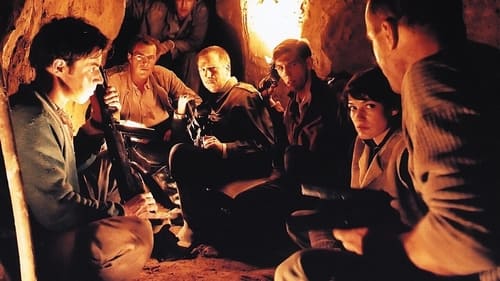
Año 1961, República Democrática Alemana. Harry Melchior (Heino Ferch) es un alemán anticomunista de la Alemania del este que consigue escapar del régimen comunista nada más completarse la construcción del muro de Berlín. Entonces decide ayudar a escapar a su querida hermana, que se tuvo que quedar al otro lado.
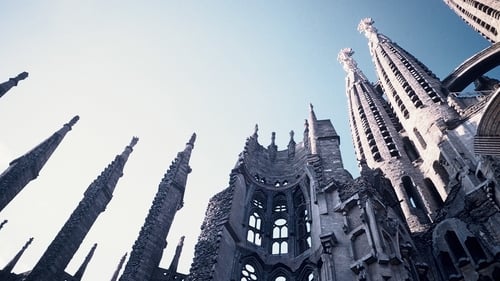
Entre los documentales de Teshigahara destaca uno realizado en 1984 sobre la vida del gran Antonio Gaudí (1852-1926) que, según los especialistas, dio origen a un auge sin precedentes en Japón de admiración e interés por la obra del arquitecto y escultor catalán. Un viaje a la arquitectura de Gaudí, incluyendo su obra maestra inacabada, la catedral de la Sagrada Familia, en Barcelona. (FILMAFFINITY)

The Richardson Olmsted Campus, a former psychiatric center and National Historic Landmark, is seeing new life as it undergoes restoration and adaptation to a modern use.

Cuando la hermosa Leonor llega al estudio de arquitectura Borla y Asociados buscando a Nelson Jara, tanto Mario Borla como su socia Marta Hovart y Pablo Simó, el arquitecto más antiguo de la constructora, aseguran desconocer ese nombre por completo. Pero todos mienten. La verdad comienza a desentramarse a través de los recuerdos de Simó. A él le tocó llevar adelante el desagradable trabajo de lidiar con Nelson Jara, un indignado propietario del edificio colindante a una obra del estudio, damnificado por una grieta en la pared de su apartamento provocada por un error en la construcción. Pero el temor y el nerviosismo que provoca en los tres involucrados la llegada de Leonor y su pregunta “¿qué pasó con Nelson Jara?” evidencian algo mucho más oscuro y sospechoso.
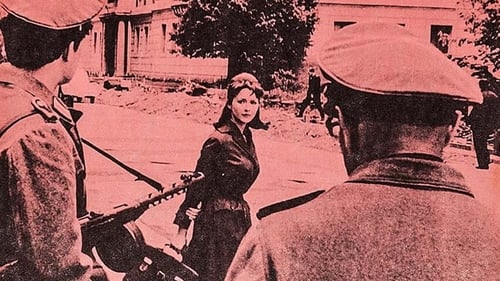
Alemania, 1962. La ciudad de Berlín se haya divida por el gran Muro que separa la parte comunista de la capitalista en la época del Telón de Acero. En este contexto, Karl Schröder (Don Murray) es un chófer que trabaja para el gobierno de la Alemania del Este y que es testigo en primera persona del asesinato de un amigo mientras conducía su coche. Animado por la hermana de dicho amigo, Erika Jurgens (Christine Kaufmann), traza un plan para escapar al sector oeste de la ciudad. ¿Su plan? Excavar un túnel por debajo del muro.
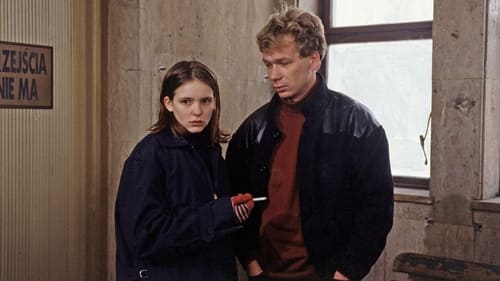
OSTKREUZ tells the episodic story of 15-year-old Elfie, who literally and metaphorically inhabits a no-man’s-land between the two Germanies shortly after the fall of the Berlin Wall. The film deploys a neorealist aesthetic to reinforce the difficulties confronting the girl, and by inference, Germany.
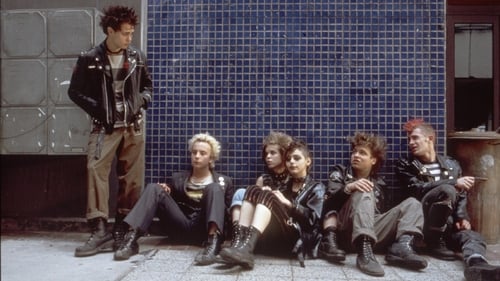
Germany 1982: The country is divided into two parts. Nele, coming from West-Germany, travels to East-Germany where she meets Captain, singer of a band. They fall in love with each other, but the regime "takes care" of their relationship, meaning: They can not see each other again. Germany 1990: The country is reunited. Nele starts searching their lost love...
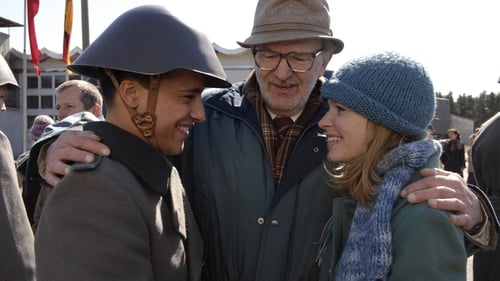
East Germany, 1988: working as a state security service agent, Jürgen Kaiser is loyal to the party line, but worried about his son Marco, a punk. As he is arrested after a concert, Marco is forced to join the army, where he surprisingly identifies with socialism and believes he has to defend his country against the capitalist enemy. While Jürgen is astonished, his wife Hanna and Marco's girlfriend Anja, supporting the civil rights movement, don't like his new attitude...


In 1919 an art school opened in Germany that would change the world forever. It was called the Bauhaus. A century later, its radical thinking still shapes our lives today. Bauhaus 100 is the story of Walter Gropius, architect and founder of the Bauhaus, and the teachers and students he gathered to form this influential school. Traumatised by his experiences during the Great War, and determined that technology should never again be used for destruction, Gropius decided to reinvent the way art and design were taught. At the Bauhaus, all the disciplines would come together to create the buildings of the future, and define a new way of living in the modern world.

Long before he played the corpulent Goldfinger, German actor Gert Froebe was a scarecrow-skinny comedian. In Berliner Ballade, Froebe makes his screen debut as Otto, a feckless Everyman who tries to adjust to the postwar travails of his defeated nation. Stymied by black-market profiteers and government bureaucrats, Otto begins fantasizing about a happier life at the end of that ever-elusive rainbow. Director R. A. Stemmle doesn't have to strive for pathos: he merely places his gangly star amidst the ruins of a bombed-out Berlin, and the point is made for him. Filmed in 1948, Berliner Ballade was later released in the U.S. as The Berliner.
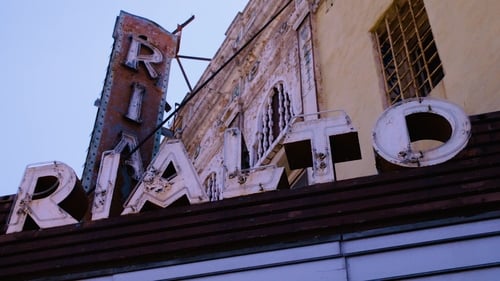
Celebrating the splendor and grandeur of the great cinemas of the United States, built when movies were the acme of entertainment and the stories were larger than life, as were the venues designed to show them. The film also tracks the eventual decline of the palaces, through to today’s current preservation efforts. A tribute to America’s great art form and the great monuments created for audiences to enjoy them in.
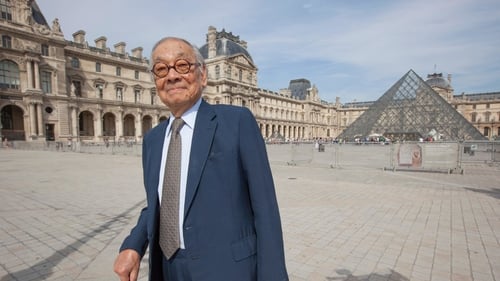
Architect I.M. Pei speaks about his famous works, such as the addition to the Louvre in Paris, the East Wing of the National Gallery of Art in Washington, D.C., and the Meyerson Symphony Center in Dallas, Texas. Footage of these projects shows both interiors and exteriors. Various other experts comment on the impact and importance of Pei's work.

A young man from an early age falls in love with a girl whose family is not in good standing with the ruling Communist party. His father however is a member of the "Stasi", the secret state police. The father not only hinders his son's relationship with the girl, but he arranges for his son, after finishing school, to become a Stasi spy himself.

Architect, engineer, geometrician, cartographer, philosopher, futurist, inventor of the famous geodesic dome and one of the most brilliant thinkers of his time. Fuller was renowned for his comprehensive perspective on the world's problems. For more than five decades he developed pioneering solutions reflecting his commitment to the potential of innovative design to create technology that does "more with less" and thereby improve human lives. He spent much of his life traveling the world lecturing and discussing his ideas with thousands of audiences. Now more relevant than ever, this film captures Fuller's ideas and thinking told in his own words.

Un documental centrado en los proyectos de reconstrucción de Berlín tras la caída del Muro de Berlín.

















